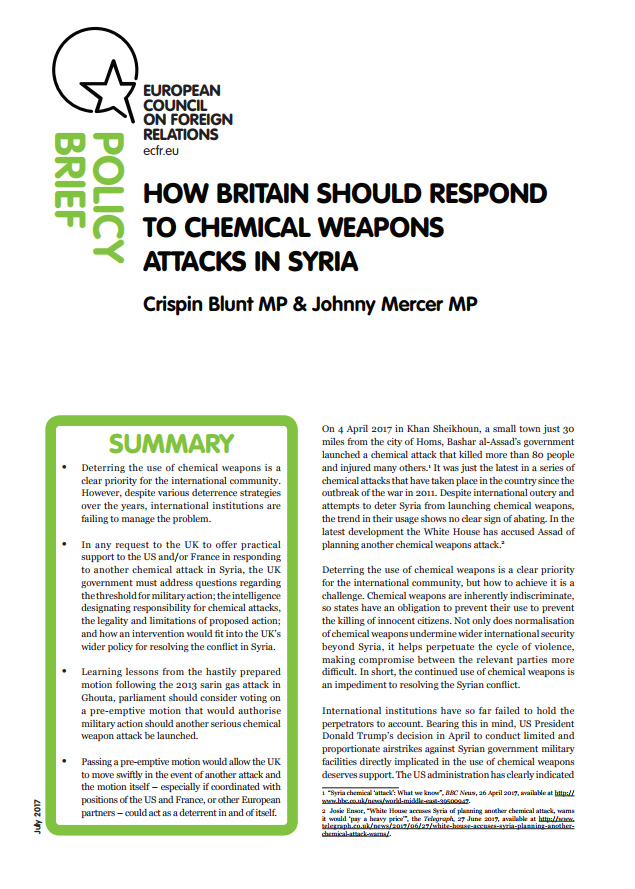Comment le Royaume-Uni devrait répondre aux attaques chimiques en Syrie
Le parlement britannique devrait examiner les mérites de l’action militaire dans l’éventualité d’une future attaque chimique en Syrie
This paper reflects the views of its authors, not those of ECFR.
- Deterring the use of chemical weapons is a clear priority for the international community. However, despite various deterrence strategies over the years, international institutions are failing to manage the problem.
- In any request to the UK to offer practical support to the US and/or France in responding to another chemical attack in Syria, the UK government must address questions regarding the threshold for military action; the intelligence designating responsibility for chemical attacks, the legality and limitations of proposed action; and how an intervention would fit into the UK’s wider policy for resolving the conflict in Syria.
- Learning lessons from the hastily prepared motion following the 2013 sarin gas attack in Ghouta, parliament should consider voting on a pre-emptive motion that would authorise military action should another serious chemical weapon attack be launched.
- Passing a pre-emptive motion would allow the UK to move swiftly in the event of another attack and the motion itself – especially if coordinated with positions of the US and France, or other European partners – could act as a deterrent in and of itself.
L'ECFR ne prend pas de position collective. Les publications de l'ECFR ne représentent que les opinions de leurs auteurs.

